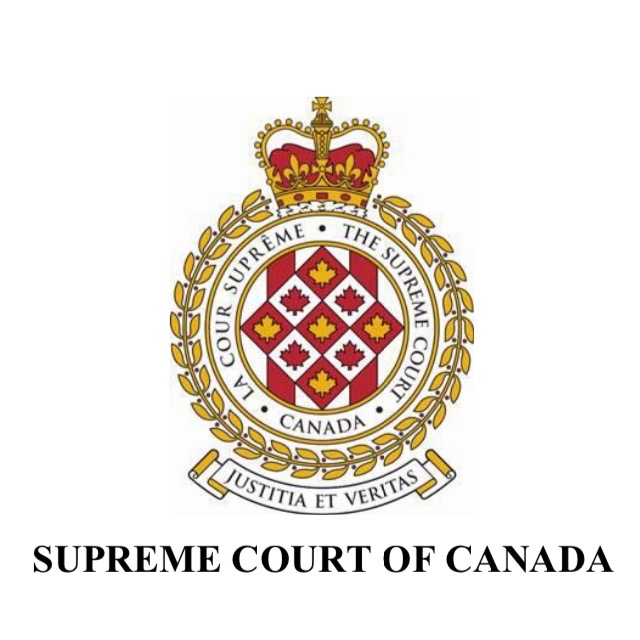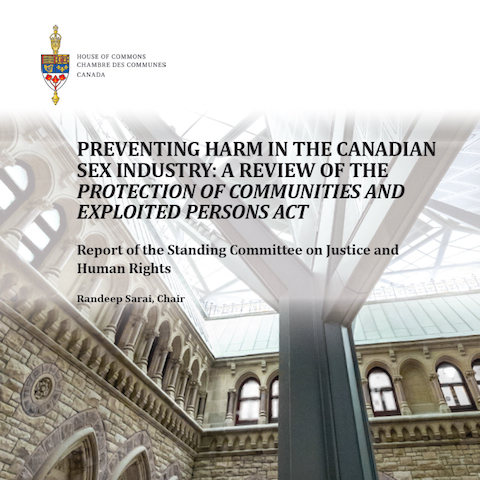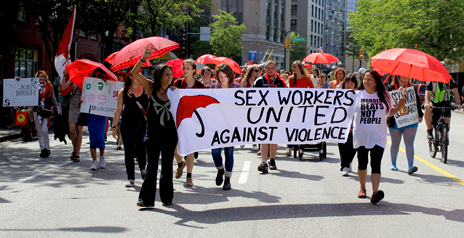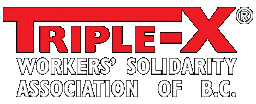 |
|
Freedom to Associate

BREAKING: Supreme Court of Canada: R. v. Kloubakov
July 24, 2025: R. v. Kloubakov, 2025 SCC 25
Held: "The appeal should be dismissed. … The convictions of the accused are affirmed."
"…neither the material benefit offence nor the procuring offence prohibits the safety measures contemplated in Bedford. As a result, the offences do not engage sex workers' security of the person…"
"…the material benefit and procuring offences … recognize that third parties who profit from the sale of sexual services cause, perpetuate and exploit the harms of commercial sex trade."
"There is no requirement for factually exploitative conduct or for the profits to be excessive or unreasonable."
"… third parties such as receptionists, managers, or drivers employed by sex workers, who work to increase their safety, are not captured by the procuring offence…"
"By contrast, a commercial agency that recruits persons to sell sexual services, provides premises for transactions, advertises to potential purchasers, makes appointments, and collects agency fees would engage liability under the procuring offence…"
"…Such a commercial agency would be directly engaged in promoting the commodification of sexual services, contrary to the first aspect of the safety-related purpose of the new offences."
"As for the right to liberty, whether s. 7 of the Charter protects a fundamental right to sell sexual services as an aspect of an individual's right to liberty amounts to a new constitutional issue."
"…In the instant case, it would be imprudent to decide this issue, as it was not considered in the courts below…"
Read the decision: R. v. Kloubakov, 2025 SCC 25
Third-Party Contracts Legal in Canada?
Released September 18, 2023: Ontario Superior Court of Justice Robert Goldstein decision, September 18, 2023, Canadian Alliance for Sex Work Law Reform et al v. Canada
Page 4: "Sex workers should understand that PCEPA, when properly interpreted, does not prohibit them from accessing safety measures, working in association with each other, and accessing the services of non-exploitative third parties. Sex workers can engage the services of third parties that do not exploit them, including security guards, drivers, and receptionists. Sex workers should also understand that when PCEPA is properly interpreted, they can seek police assistance without fear that they will be charged for selling their sexual services, receiving a material benefit from the own sexual services, communicating with customers in relation to their own sexual services, or advertising in relation to their own sexual services.…"
pp. 122-123
"[426] As I have already emphasized, properly interpreted, PCEPA does not prevent sex workers from forming an association or a collective where it is not a commercial enterprise. words, PCEPA would not permit the Applicant Tiffany Anwar to legally re-establish her escort agency, as she wishes. PCEPA does not, however, prohibit Ms. Anwar from merely associating with sex workers — perhaps as a hired receptionist or security guard in a collective established by her former employees. What PCEPA specifically prohibits Ms. Anwar from doing is profiting from the sexual services provided by others.
"[427] Moreover, the associational activity that PCEPA really seeks to prohibit is associational activity that exploits vulnerable persons. Section 2(d) of the Charter is aimed at reducing, not enhancing social imbalances. Striking down the material benefit and procuring offences would bring a perverse result. Sex workers already enjoy the right to freedom of association, but exploiters do not. If the procuring and material benefit offences were struck down, it is not the right to freedom of association of sex workers that would be expanded. It would be the right to freedom of association of exploiters. That is not what s. 2(d) of the Charter is meant to protect.
"[428] Finally, I turn to the association between sex workers and customers. For similar
reasons, I find that s. 2(d) of the Charter does not protect that association. Customers do not have the right to communicate or associate with sex workers, whether virtually, by phone, or in person. The immunity provisions do not make it legal for sex workers to have these communications, but they immunize sex workers from prosecution for doing so. In other words, it is not associational rights of sex workers at issue — it is the associational rights of customers."
Read more from Canadian Alliance for Sex Work Law Reform et al v. Canada, 2023.
On October 20, 2022, Justice Minister, Hon. David Lametti issued the Government Response to the Fourth Report of the Standing Committee on Justice and Human Rights – Preventing Harm in the Canadian Sex Industry: A Review of the Protection of Communities and Exploited Persons Act.
The Government of Canada's Response mostly dismissed the recommendations in the Fourth Report of the Justice Committee. Instead, Justice Canada will continue "to monitor the impacts of the PCEPA" (provisions which "reflect a Nordic Model approach to the sex trade") as well as "international developments, including research concerning the impact of different legislative regimes governing the sex trade in other countries."
Triple-X sent a letter (dated November 25) to the Justice Minister, asking Justice Canada to provide clarification regarding the impact of Criminal Code Section 286 on the Charter right of sexual services providers to form unions and professional associations.
In our view, the government has an obligation to allow solidarity organizing in the sex industry. The lack of clarity in the Criminal Code Sexual Services Offences law raises many questions:
- Does Criminal Code section 286.2 (Material Benefit from Sexual Services) violate sexual services providers' right under Charter of Rights and Freedoms section 2(d) to form and run unions and professional associations?
- Is this discriminatory law, which effectively prohibits sexual services providers from unionizing or forming professional associations, justifiable under section 1 of the Charter?
- As a solidarity association, is Triple-X prevented from lawfully receiving membership fees and lawfully counselling and encouraging members to provide Triple-X services?
We received a reply to our correspondence from The Honourable David Lametti, dated May 2, 2023. "As Minister of justice and Attorney General of Canada, I am not able to provide legal advice to members of the public. …Our goverment is very concerned about the safety of all persons engaged in the sex trade, and we are committed to taking into account the interests of all impacted groups."
Justice Committee Review of PCEPA

From February through April 2022, Canada's Parliamentary Standing Committee on Justice and Human Rights conducted seven hearings with 48 witnesses and received 72 briefs for the Review of Canada's new 2014 prostitution laws — the Protection of Communities and Exploited Persons Act. June 22, 2022, the Parliamentary Committee on Justice and Human Rights tabled their report: "Preventing Harm in the Canadian Sex Industry: A Review of the Protection of Communities and Exploited Persons Act."
In February 2022, Triple-X submitted this brief to Canada's Justice Committee Review of PCEPA that specfically outlines the laws' infringement on freedom to associate.
- Stronger Together: Solidarity Organizing and Exploitation Prevention – Courts decided government has an obligation to support solidarity organizing: "Dunmore [Ontario Supreme Court decision] cracked the door open for expanding the scope of the right of freedom of association to cover certain collective activities that have no individual analogue."
Contents

Red Umbrella March, June 11, 2016. Photo: Elaine Ayres |
Freedom to Associate and the Red Umbrella March
Vancouver's First Red Umbrella March for Sex Work Solidarity was held on June 8, 2013 to show popular support for sex workers ahead of the Supreme Court of Canada's review of Canada v. Bedford. Sex-worker events were coordinated in cities across Canada that weekend, including Ottawa, Montreal and Toronto. The Vancouver Red Umbrella March was organized by Triple-X Workers' Solidarity Association of B.C. and co-sponsored by Downtown Eastside Sex Workers United Against Violence (SWUAV), PACE Society, Pivot Legal Society, B.C. Coalition of Experiential Communities (BCCEC), FIRST: Feminists for Decriminalization of Sex Work.
In December 2013, The Supreme Court ruled that all three sections of the Criminal Code that prohibited prostitution violated Canada's Charter of Rights and Freedoms, and gave Parliament one year to address the concerns of the ruling or the laws would be repealed.

First Red Umbrella March, Vancouver, June 8, 2013. Photo: Esther Shannon |
On June 14, 2014, Triple-X organized Vancouver's second annual Red Umbrella March for Sex Work Solidarity (co-sponsored by SWUAV, Pivot, PACE, BCCEC and FIRST) to keep the public's attention on the issue as the new Conservative Government held hearings to inform the creation of new prostitution laws that would meet the Supreme Court's concerns.
In December 2014, the Government of Canada enacted new laws to replace the old sections of the Criminal Code with the Protection of Communities and Exploited Persons Act (PCEPA).
Triple-X continued to organize the annual Vancouver Red Umbrella March (with the previous co-sponsors joined by SWAN Society) every second Saturday in June for the next five years (2015-2019). In July 2019, in an interview with The Georgia Straight, Triple-X spokesperson, Andrew Sorfleet, revealed that the law "stands right in the way of sex workers being able to form their own association." Then, in 2020, public health orders prohibited large outdoor gatherings in response to the COVID-19 pandemic. For Red Umbrella March 2020 (RUM 2020) and RUM 2021, Triple-X produced online events premiering slideshow videos to commemorate the annual march.
|> Contents |
2022 Justice Committee Review of PCEPA
From February through April 2022, the Parliamentary Standing Committee on Justice and Human Rights conducted hearings for a Review of Canada's new 2014 prostitution laws — the Protection of Communities and Exploited Persons Act.
June 22, 2022, the Parliamentary Committee on Justice and Human Rights tabled their report: "Preventing Harm in the Canadian Sex Industry: A Review of the Protection of Communities and Exploited Act."
The Justice Committee has recommended parliament repeal two laws: Criminal Code s.213 [Communicating to Provide Sexual Services] and s.286.4 [Advertising Sexual Services]. The Justice Committee has also recommended the repeal of four sections of the Immigration and Refugee Protection Regulations that make migrants working in the sex industry unable to report incidents without fear of deportation. There are 17 recommendations total.
Triple-X submitted a brief which received mention on pg. 31 (pg. 41 of PDF):
"Triple-X Workers' Solidarity Association of B.C.'s brief states that the law does not contemplate sex workers organizing unions or professional associations or the possibility of such organizations collecting membership dues, and providing services such as advertising and promotion of the industry. They call for amendments to clearly permit such organizing by sex workers."
In February 2022, Triple-X submitted this brief to Canada's Justice Committee Review of PCEPA, "Stronger Together: Solidarity organizing and exploitation prevention," that specifically outlines the laws' infringement on freedom to associate.
|> Contents |
Court Rulings on the Constitutionality of PCEPA
- October 10, 2023, R. v. Kloubakov, 2023 ABCA 287 – "The offence in s. 286.1 is obtaining for consideration or communicating with anyone for the purpose of obtaining for consideration the sexual services of a person. The offence is not providing sexual services for consideration. … The mere giving of advice or even providing a room, without more, is not conduct that is caught by the offence. In contrast, a commercial agency that recruits, provides rooms for the transactions, makes appointments, and collects fees has engaged in the conduct prohibited by subsection 286.3(1). This is the conduct that Parliament intended to curtail to achieve its objective of deterring the procurement of persons for the purpose of prostitution. The offence in subsection 286.3(1) is aimed at prohibiting the recruitment of vulnerable people into the sex trade. This was Parliament's choice."
- September 18, 2023, Canadian Alliance for Sex Work Law Reform et al v. Canada – "Sex workers should understand that PCEPA, when properly interpreted, does not prohibit them from accessing safety measures, working in association with each other, and accessing the services of non-exploitative third parties. Sex workers can engage the services of third parties that do not exploit them, including security guards, drivers, and receptionists. Sex workers should also understand that when PCEPA is properly interpreted, they can seek police assistance without fear that they will be charged for selling their sexual services, receiving a material benefit from the own sexual services, communicating with customers in relation to their own sexual services, or advertising in relation to their own sexual services…" CASWLR filed Notice of Appeal, October 13, 2023.
- "Toronto area man charged after allegedly failing to pay for sexual services," Abby O'Brien, CTV News, May 2, 2023 – "A news release issued by Durham police Tuesday said 32-year-old Janarthanan Sathianthan has been charged with three counts of theft under $5,000 and three counts of obtaining sexual services for consideration."
- January 12, 2022, Supreme Court of Canada rejected appeal of Court of Appeal for Ontario R. v. N.S. ONCA 160. The SCC does not provide reasons for rejecting or accepting appeals. Retrial in Ontario Court for N.S. will proceed. Court of Appeal for Ontario ruling that PCEPA is constitutional remains valid. See: la Cour suprême du Canada n'entendra pas l'appel de N. S. : L'Ontario avait remporté son appel contre le travailleur du sexe devant le plus haut tribunal de la province – «Avec le refus de la Cour suprême du Canada de jeudi matin, la loi fédérale en matière de prostitution est donc constitutionnelle comme en fait foi le verdict du plus haut tribunal de la province. …La Cour d'appel de la province avait alors annulé le verdict d'acquittement prononcé contre N. S. devant un tribunal inférieur, ordonné un nouveau procès et rétabli la validité des trois articles controversés. …Dans sa décision, la Cour d'appel de l'Ontario avait toutefois expliqué que l'objectif principal de la loi est de décourager la prostitution et non pas d'assurer la sécurité des prostituées contre la violence.»
- R. v. Ramelson, 2022 SCC 44, Supreme Court of Canada, November 24, 2022. SSCC-39664 Case in Brief – R. v. Ramelson – "Writing for a unanimous Court, Justice Andromache Karakatsanis said Project Raphael was a bona fide inquiry because "police had reasonable suspicion in a space defined with sufficient precision." The space was the particular type of ads within the York Region escort subdirectory of Backpage.com that emphasized the sex worker's youth. She also said that the offences police provided the opportunity to commit "were rationally connected and proportionate" to the offences they suspected were occurring in that space. To determine whether an investigation, conducted on broad virtual spaces, such as the Internet, is precisely defined, courts must look at the space's function, its interactivity and the sub-spaces embedded into the broader virtual space."
[Nota Bene] This particular decision relates to charges under Criminal Code Section 286.1(2) "Obtaining sexual services for consideration from person under 18 years." However, this ruling could also apply to police investigations under 286.1(1) "Obtaining sexual services for consideration." "Everyone who, in any place, obtains for consideration, or communicates with anyone for the purpose of obtaining for consideration, the sexual services of a person is guilty of an indictable offence…"
- "Cops posing as underage sex workers not entrapment, Supreme Court rules unanimously," Alyshah Hasham, The Star, November 24, 2022 – "Police cannot induce someone to commit a crime or provide opportunities to commit a crime. There is an exception when there is a "reasonable suspicion over a sufficiently precise space" and "genuine purpose of investigating and repressing crime."
- Ontario Superior Court of Justice, Canadian Alliance for Sex Work Law Reform et al v. Canada (Court File No.: CV-21-00659594-0000) – Notice of Application filed March 30, 2021. Case heard October 3-7, 2022. Applicants argue that the Criminal Code provisions that address the commercial exchange of sexual services violate sections 2(b), 2(d), 7 and 15 of the Canadian Charter of Rights and Freedoms. (Factum of the Intervener, Canadian Civil Liberties Association)
BETWEEN: Canadian Alliance for Sex Work Law Reform, Monica Forrester, Valerie Scott, Lanna Moon Perrin, Jane X, Alessa Mason and Tiffany Anwar AND Attorney General of Canada AND Attorney General of Ontario (Intervener) AND Amnesty International Canadian Section (English speaking), Association for Reformed Political Action Canada, AWCEP Asian Women for Equality Society, Black Legal Action Centre, Bridgenorth Women's Mentorship and Advocacy Services, British Columbia Civil Liberties Association, Canadian Association of Refugee Lawyers, Canadian Civil Liberties Association Parents Against Child Trafficking Coalition, Defend Dignity, EGALE Canada and the Enchanté Network, Evangelical Fellowship of Canada, Migrant Workers Alliance for Canada, Ontario Coalition of Rape Crisis Centres, Sexual Health Coalition, Women's Equality Coalition, and Women's Legal Education and Action Fund (LEAF) (Interveners).
- Court of Appeal for Ontario R. v. N.S. ONCA 160, February 24, 2022 – "This case is not about unionized employees and the impact on collective bargaining; nor is it about persons engaging in lawful work. It is about persons who are providing sexual service for consideration, contrary to law. In adopting a variant of the Nordic model, Parliament rejected an approach that would characterize persons who provide sexual services for consideration as 'workers' and prostitution as legal sex 'work'."
- En français : R. c. Kloubakov 2022 ABQB, January 10, 2022 – Alberta Court of Queen's Bench Justice Kristine Eidsvik determined both Kloubakov and Moustaine had violated sections of the Criminal Code making it illegal to materially gain from prostitution and for procuring women into the sex trade, but ruled that the Criminal Code sections the pair was charged under were overly broad and in violation of the Charter and therefore constitutionally invalid. ("Calgary judge stays pimping-related allegation against two Quebec men after ruling Criminal Code sections unconstitutional," Kevin Martin, Calgary Herald, January 10, 2022)

- R. v. N.S. 2021 ONSC 1628 – Reasons for Decision on Charter Challenge to Subsections 286.2, 286.3 and 286.4 of the Criminal Code. Justice P.W. Sutherland. Released: March 4, 2021: "Parliament has decided to allow individual commercial sex work to continue without being subject to prosecution … their rights under section 7 of the Charter remain engaged which includes their life, liberty and security of person shall not be deprived except in accordance with the principles of fundamental justice. … Having determined that section 7 of the Charter has been infringed and that infringement is not a reasonable limit in a free and democratic society, I decline to deal with the alleged infringement to section 2(d) of the Charter."
- R. v. Joseph, 2020 ONCA 733, Court of Appeal for Ontario, November 19, 2020, D.M. Brown, Trotter and Paciocco JJ.A. – Analysis [65]: "…the now-repealed precursor offence of procuring someone for prostitution, continues to apply to s. 286.3: R. v. Gallone (2019) … 'procure' means 'to cause, or to induce, or to have a persuasive effect upon the conduct that is alleged.' These are three distinct ways of procuring. 'Procure' is not confined to causing someone to do something, let alone causing them to do it through reasoning or argument."
- R. v. Anwar, 2020 ONCJ 103, Ontario Court of Justice, February 21, 2020, Court File No. London 18-5872; Kitchener 19-236. Before Justice A. T. McKay. – Conclusion [216]: "I find sections 286.4, 286.3 and 286.2 of the Criminal Code to be unconstitutional. "Regarding the admission of evidence from the two Crown witnesses: "I will admit the evidence. However, given the lack of impartiality and objectivity, and the inability of both witnesses to consider any position other than their favoured ideology, the evidence of the two Crown expert witnesses will be given no weight."
- R. v. Gallone, 2019 ONCA 663, Ontario Court of Appeal, August 20, 2019, Docket No. C64738; Kitchener 19-236. Hoy A.C.J.O., Hourigan and Paciocco JJ.A. Heard June 5, 2019 – Analysis [98]: "The fact that Parliament could have, but did not, craft any internal exceptions to the advertising offence like those it inserted into the material benefit offences supports the view that Parliament intended to treat the prohibition on advertising, which furthers the bill's objective of reducing the demand for sexual services, differently from the provision of other goods and services, such that it would capture those who assist sellers in advertising their sexual services even if there were no exploitative relationship between them."
|> Contents |
Sexual Services Offences Criminal Code of Canada 2015
- A Review of the Measure to Address Prostitution Initiative (MAPI), Nadine Badets and Cherami Wichmann, Research and Statistics Division, Department of Justice Canada, July 21, 2022. [As part of PCEPA Bill C-36] "The MAPI was established to provide funding to non-profit organizations and law enforcement agencies during the period of 2015-2016 to 2019-2020. The funding was allocated to 23 non-profit organizations and law enforcement agencies in the provinces2 who offer support services to people who provide sexual services in Canada. …This study uses data from the Measures to Address Prostitution Initiative (MAPI) to present some of the socio-demographic characteristics and experiences of people who provide or have provided sexual services in Canada's sex trade and received support services through organizations funded by the Measures to Address Prostitution Initiative (MAPI). Data are for the period of 2015-16 to 2019-20 and represent 2,291 people (referred to as MAPI clients throughout the report)."
Re: Protection of Communities and Exploited Persons Act, The Canadian Bar Association, to Randeep Sarai, M.P., Chair, Committee on Justice and Human Rights, March 18, 2022 [This brief goes through the Criminal Code sections implemented by PCEPA and provides legal opinion on the constitutionality of each.]
Crimes related to the sex trade: Before and after legislative changes in Canada, Stats Canada June 2021 – "Between 2015 and 2017, incidents of the new offence of obtaining sexual services from an adult increased sharply before declining for two consecutive years. Individuals accused in these incidents were mostly men."
Prostitution offences in Canada: Statistical trends, Cristine Rotenberg, Canadian Centre for Justice Statistics, November 10, 2016
Sexual Services Offences Criminal Code of Canada, 2015 – "…the Parliament of Canada recognizes the social harm caused by the objectification of the human body and the commodification of sexual activity … it is important to denounce and prohibit the purchase of sexual services because it creates a demand for prostitution … [and] to continue to denounce and prohibit … the commercialization and institutionalization of prostitution…"
Qs & As – Prostitution Criminal Law Reform: the Protection of Communities and Exploited Persons Act (In force as of December 6, 2014) – "…Prostitution allows men, who are primarily the purchasers of sexual services, paid access to female bodies. Condoning a clearly gendered practice by legalizing and regulating it would demean and degrade the human dignity of all women and girls. The human body is not a commodity to be bought and sold."
Technical Paper: Bill C-36, An Act to amend the Criminal Code in response to the Supreme Court of Canada decision in Attorney General of Canada v. Bedford and to make consequential amendments to other Acts (Protection of Communities and Exploited Persons Act), Department of Justice Canada, December 1, 2014 – p. 3: "Bill C-36 reflects a significant paradigm shift away from the treatment of prostitution as "nuisance," as found by the Supreme Court of Canada in Bedford, toward treatment of prostitution as a form of sexual exploitation that disproportionately and negatively impacts on women and girls. Bill C-36 signals this transformational shift both through its statement of purpose, as reflected in its preamble, and its placement of most prostitution offences in Part VIII of the Criminal Code, Offences Against the Person."
"Justin Trudeau wary of proposal to regulate, tax prostitution," CBC News, January 17, 2014 – "'…we need to make sure that we are finding a way to keep vulnerable Canadians protected from violence that surrounds prostitution but also is intrinsic to prostitution,' Trudeau said. …Trudeau went further, saying it's important to recognize that 'prostitution itself is a form of violence against women.' Trudeau also said Liberals are 'certainly going to look at' the so-called Nordic model, which penalizes those who purchase sex, not those who sell it."
Canada (Attorney General) v. Bedford, File No.: 34788 2013: June 13; 2013: December 20. p. 1105 – "The impugned laws negatively impact security of the person rights of prostitutes and thus engage s.7. The proper standard of causation is a flexible "sufficient causal connection" standard, as correctly adopted by the application judge. The prohibitions all heighten the risks the applicants face in prostitution—itself a legal activity. They do not merely impose conditions on how prostitutes operate. They go a critical step further, by imposing dangerous conditions on prostitution; they prevent people engaged in a risky — but legal — activity from taking steps to protect themselves from the risks. That causal connection is not negated by the actions of third-party johns and pimps, or prostitutes' so-called choice to engage in prostitution. While some prostitutes may fit the description of persons who freely choose (or at one time chose) to engage in the risky economic activity of prostitution, many prostitutes have no meaningful choice but to do so. Moreover, it makes no difference that the conduct of pimps and johns is the immediate source of the harms suffered by prostitutes. The violence of a john does not diminish the role of the state in making a prostitute more vulnerable to that violence." [Para. 89.]
"I have concluded that each of the challenged provisions, considered independently, suffers from constitutional infirmities that violate the Charter. That does not mean that Parliament is precluded from imposing limits on where and how prostitution may be conducted. Prohibitions on keeping a bawdy-house, living on the avails of prostitution and communication related to prostitution are intertwined. They impact on each other. Greater latitude in one measure — for example, permitting prostitutes to obtain the assistance of security personnel — might impact on the constitutionality of another measure — for example, forbidding the nuisances associated with keeping a bawdy-house. The regulation of prostitution is a complex and delicate matter. It will be for Parliament, should it choose to do so, to devise a new approach, reflecting different elements of the existing regime." [Para. 165.]
"Canada's anti-prostitution laws: 1839-2005," $WE@&R! The Sex Workers' Workbook ($ex, Work, Education, Advocacy & Research!), A. Sorfleet, Sex Workers' Alliance of Vancouver, 2005
|> Contents |
|
 |

